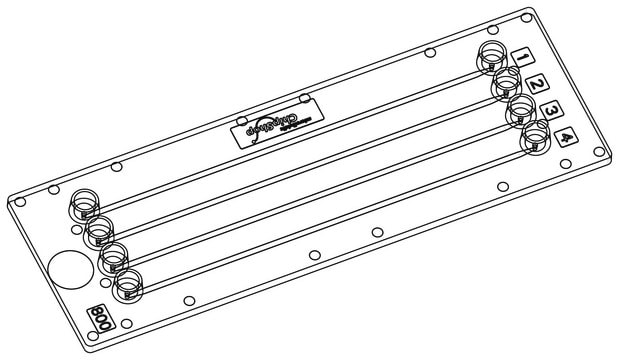922013
Droplet generator chip - Four elements per chip design
Fluidic 537, PC
Synonym(s):
Microfluidic chip, Microparticle synthesis, Nanoparticle
About This Item
Recommended Products
description
Microfludic chip x1
Looking for similar products? Visit Product Comparison Guide
Application
Droplet generator chip - Four elements per chip design, Fluidic 537, PC is made of PC (polycarbonate). The droplet generator with design number 537 possesses a classic flow focusing geometry, perfectly suited to generate simple droplets. With four identical droplet generator units on one microfluidic chip, this device is ideal for anyone who wants to try or compare multiple experimental setups, without the need of ordering a new chip for every experiment. This chip is one of the few droplet generators devices with Luer interfaces and appropriate Luer compatible accessories are required.
Choose from one of the most recent versions:
Certificates of Analysis (COA)
Sorry, we don't have COAs for this product available online at this time.
If you need assistance, please contact Customer Support.
Already Own This Product?
Find documentation for the products that you have recently purchased in the Document Library.
Articles
Microfluidic assembly can efficiently overcome the general disadvantages of polyamine nanoencapsulation of nucleic acids, such as a less defined morphology and composition, polydispersity, and poor reproducibility.
Our team of scientists has experience in all areas of research including Life Science, Material Science, Chemical Synthesis, Chromatography, Analytical and many others.
Contact Technical Service